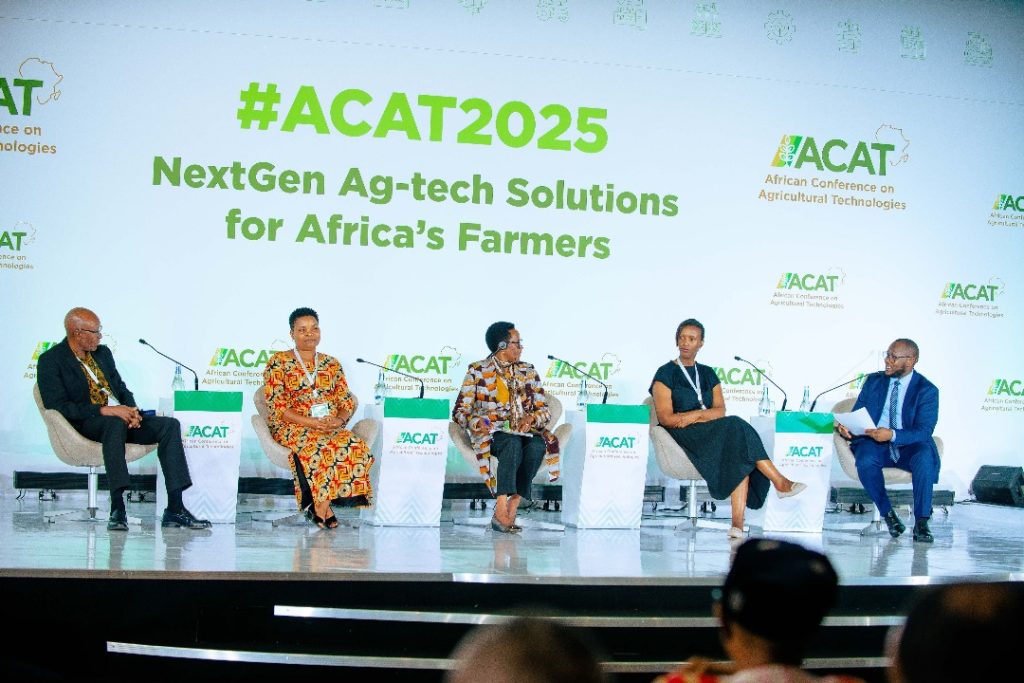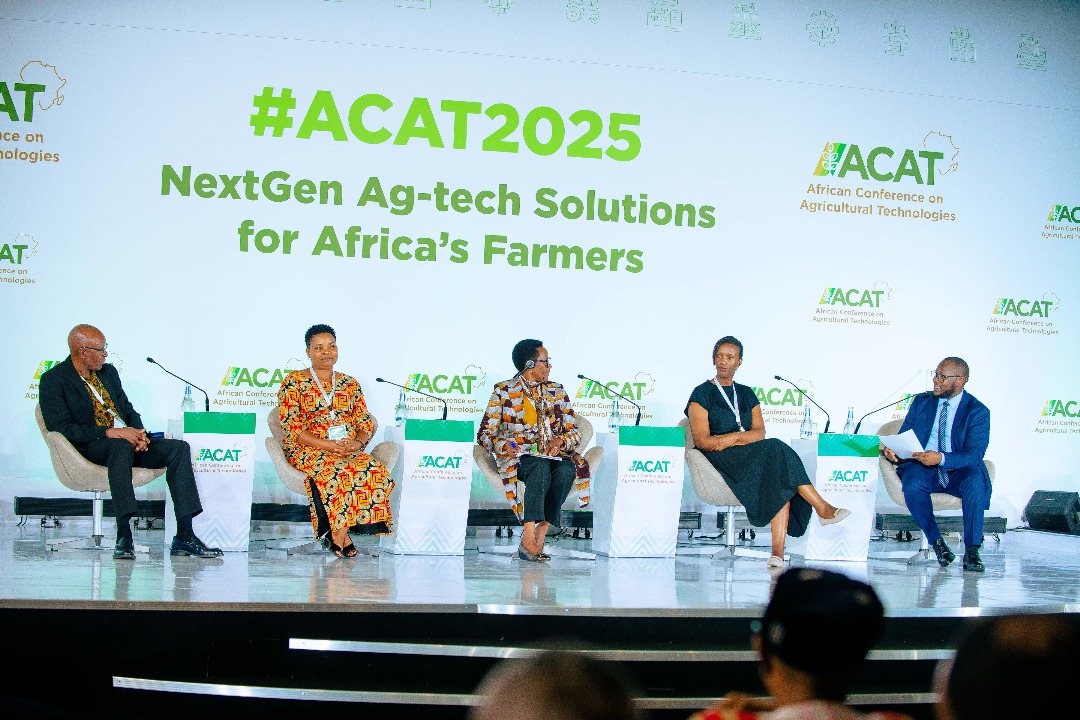
Elizabeth Nsimadala, a farmer and president of the Eastern Africa Farmers Federation (EAFF), has underscored the urgent need to reposition smallholder farmers from passive recipients to active partners if Africa is to achieve food security.
Nsimadala believes that agricultural innovations must be built around the smallholder farmers who are the major stakeholders in the value chain.
“Agriculture is a vital pillar of the African economy, employing approximately 60% of the population, But the sector still faces significant challenges, such as limited access to agricultural inputs and technology, insufficient access to financing and markets and the impacts of climate change.
“Although new policy reforms are regularly being developed and implemented to address African’s agriculture challenges smallholder farmer are mostly absent from the conversations and procedures which don’t always reflect the real, day-to-day concerns of farmers, Nsimadala observed.
“I want to see the adoption of a farmer-centric approach in developing solutions because the present formula mostly does not make sense to the smallholder farmer, particularly in the rural areas of Africa where they need skills for effective utilization,” she said.
Exploring Solutions
Nsimadala is just one of the 33 million smallholder farmers in Africa, she recently participated in the 2ND Edition of the African Conference on Agricultural Technology (ACAT 2025), aimed at closing the agricultural innovation gap across Africa.
For Nsimadala and many farmers who didn’t have the opportunity to participate in ACAT, their main concern has been that of farmers involvement in developing agriculture solutions and policies in Africa.
“I have heard the “Feed Ghana Programme” is an initiative launched by the Ghanaian government to boost agricultural production, enhance food security and create jobs” she said. It’s a good initiative if you ask me but were farmers involved in designing of this great model?”
Nsimadala made similar points about Nigeria’s Anchor Borrowers Programme which offers smallholder farmers support as well as the “Feed the Future Rwanda programme” which aims to increase incomes and improve nutrition in Rwanda by sustainably increasing agricultural productivity and strengthening the domestic consumption.
To scale such great efforts, Nsimadala believes that African governments must double the funding allocated for the agriculture sector.
“Africa needs to significantly increase investment in agriculture to about 10% or more of its budget to achieve food security” she said.
“Food is the most basic of human needs. It is essential not just for the health but also that of communities.
Adding Value: The AATF Model
Dr. Daniel Kyalo Willy, a Senior Manager of Agribusiness, Commercialization and Policy at the African Agricultural Technology Foundation (AATF) believes that farmers livelihoods can be enhanced through an Integrated Business Model introduced by his organization.
The model offers a path for farmers to go beyond accessing better seeds to achieve the full yield potential, wealthier and health they deserve while and playing a critical role in Africa’s transformation agenda.
AATF’s Agroprocessing model, for example, works to transform raw agricultural commodities into more usable and marketable value-added products.
“I want to explain that it encompasses a range of activities, from simple sorting and packaging to more complex processes like milling, canning, drying, and even creating entirely new products from agricultural inputs” Kyalo said. Essentially, it’s about adding value to what comes from farms, rivers and forests”
He cited examples from projects AATF implemented in Ghana, Nigeria and Kenya, among others where more than 5000 smallholder farmers were trained on Good Agriculture Practices (GAP) and value addition.
“Training knowledge materials were developed, to be availed to users for daily and future use as part of the AATF business model” Kyalo said.
The African Agricultural Technology Foundation (AATF) focuses on collaborations to facilitate access to and adoption of agricultural technologies by smallholder farmers in Sub-Saharan Africa.
“Our business model centers on strong public-private partnerships to identify, access, adapt and deliver appropriate technologies to address farmers’ key challenges and improve their livelihoods,” he said.
Improving farmer access to agricultural technologies will help address production challenges, enhance yields and contribute to the continent’s economic growth while enhancing community health and wealth, Kyalo added.
“I say everything else can wait – but integrated rural transformation through agroprocessing is urgent” he said. “I urge everyone to join us to scale this model across Africa; It is doable in this generation and beyond”.
Supporting Farmer Inclusion
Ishmael Sunga, Chief Executive Officer of the, Southern African Confederation of Agricultural Unions (SACAU) agreed with Nsimadala on the need to adopt a farmer-centric design approach in developing policies and solutions.
“This gap hinders their ability to benefit from innovations intended to improve their livelihoods and I hope these conversations will help address this critical issue by bringing farmers’ voices to the forefront, he said.
“We want CSOs, NGOs, donors and government to ensure that farmers are not just beneficiaries of agricultural policies but active contributors in shaping them as well as implementing them in the various regions”
Farmers and others attending ACAT concurred that agriculture should no longer be treated as a fallback but a frontier of economic transformation. It’s clear that agriculture can create jobs, they noted, but the question now is whether African governments and investors will support the sector with the urgency and ambition required.
Real change will come only if policies are backed by action, accountability and farmer inclusion at every level. Farmer-centric design is foundational for developing effective next generation ag-tech solutions and critical to ensuring that these solutions address the specific needs and realities of African smallholder farmers, leading to higher awareness, wide scale adoption rates and lasting impact in rural Africa.


